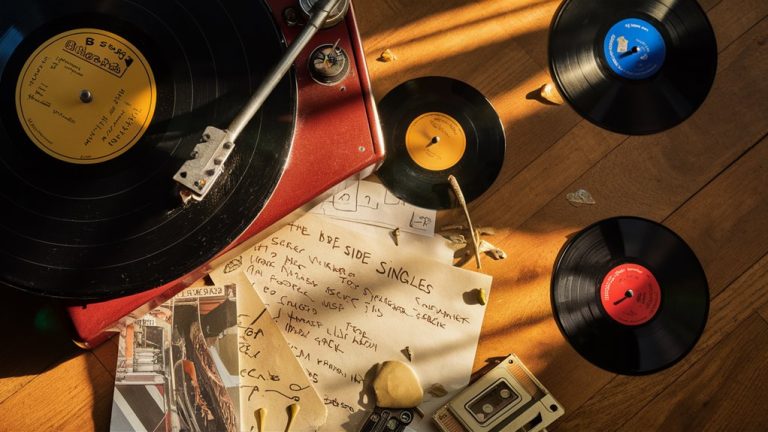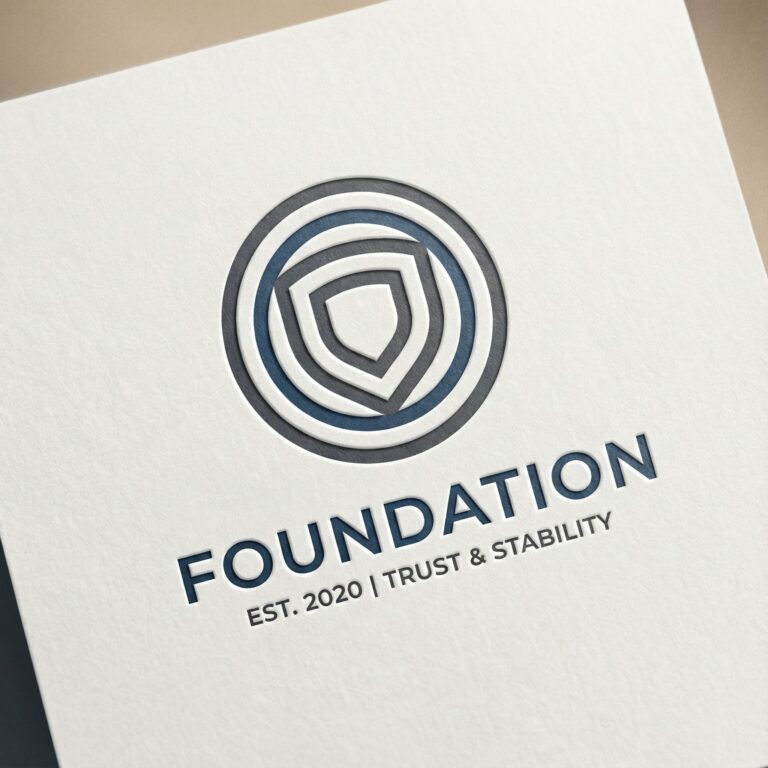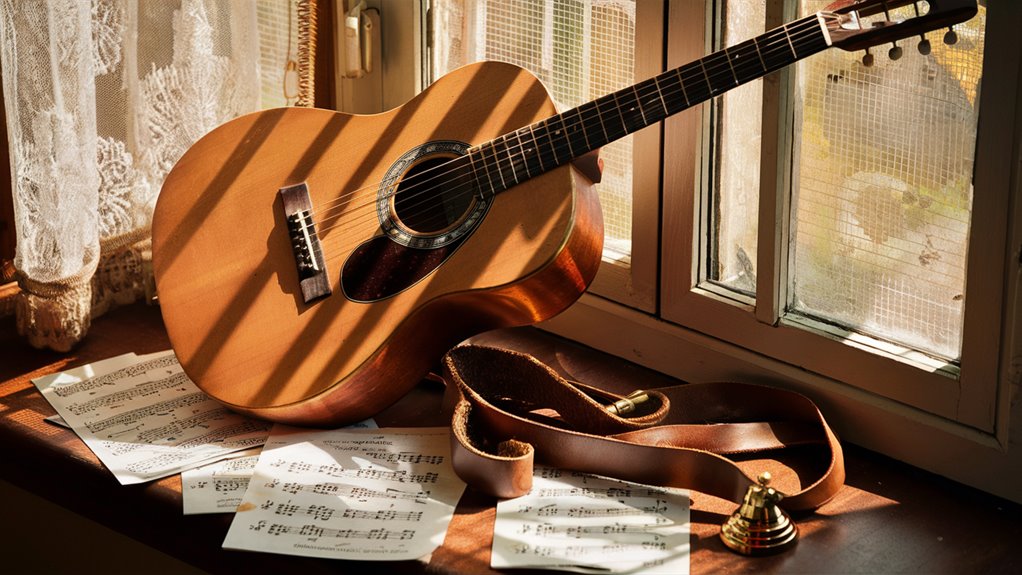
Top Solo Songs for Beginners
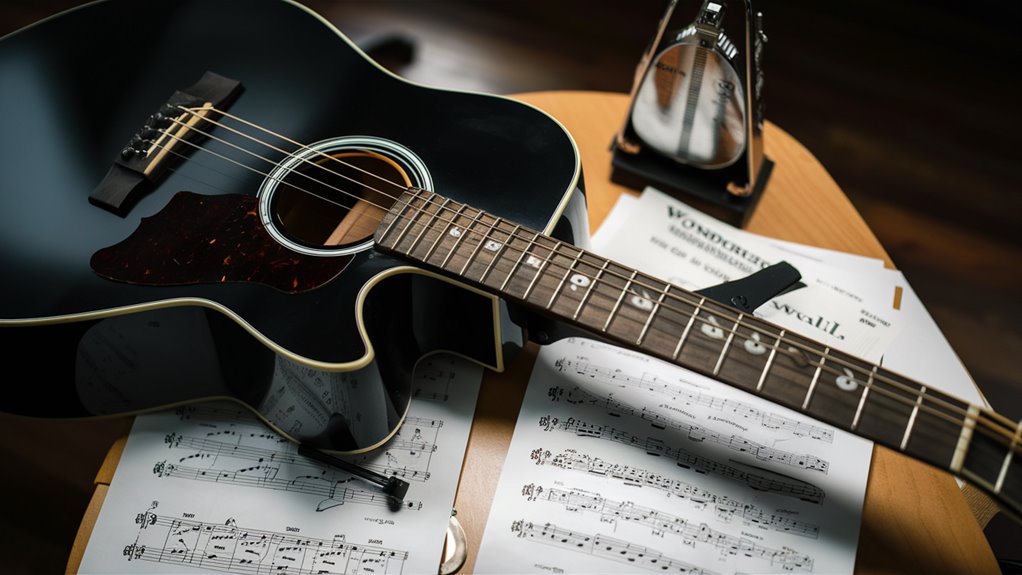
Key Starting Songs for New Musicians
To learn music, you need easy songs that build your core skills while they keep you into it. These songs are just right as they are simple to get and help you grow.
Guitar Basics
- “Horse With No Name” – Has two easy chord shapes
- “Wonderwall” – Simple open chords that you’ll know
- “Brown Eyed Girl” – Starts easy strumming styles
- “Leaving on a Jet Plane” – Great for learning chord moves
Piano Starters
- “Heart and Soul” – Helps with hand work
- “Chopsticks” – Teaches you finger moves
- “Fur Elise” (easy version) – Starts simple tunes
- “When the Saints Go Marching In” – Gets rhythm going
Voice Skills
- “Amazing Grace” – Top for breath work
- “Moon River” – Teaches clean lines
- “Somewhere Over the Rainbow” – Builds sound right
- “Happy Birthday” – Perfect to grow range
Tips for Learning Well
- Use a metronome in your practice
- Start with the right way to play
- Slow down when you begin a piece
- Record to check your growth
- Break hard parts into small bits
These songs help you get better while they keep you going with tunes you can know and bits you can do.
Why Learn Solo: A Full Guide
Why Play Solo Matters
Playing solo tunes builds key music base that group play can’t give you.
When playing by yourself, you have to keep time, pitch, and beat on your own.
This solo work grows strong music skills and lets you play better.
How You Show Feeling and Control
Playing solo helps you grow your sound and control. 추가 자료 확인하기
You can change volume, get the timing tight, and show feeling.
As you play, your breath and line skills get better as you handle the tune on your own.
Getting Your Skills Up
Reading music and knowing music rules get way better when you work solo. You must get these on your own:
- Music keys
- Time values
- Music notes
- Beat styles
Start with easy tunes and move up as you get better. Best Karaoke Systems
Being Sure on Stage
Playing solo makes you sure of yourself for:
- Auditions
- Shows
- Group play
- Work gigs
The big music skills you grow playing on your own make you ready for any kind of music setting.
How to Pick Your First Solo Tunes: A Full Guide
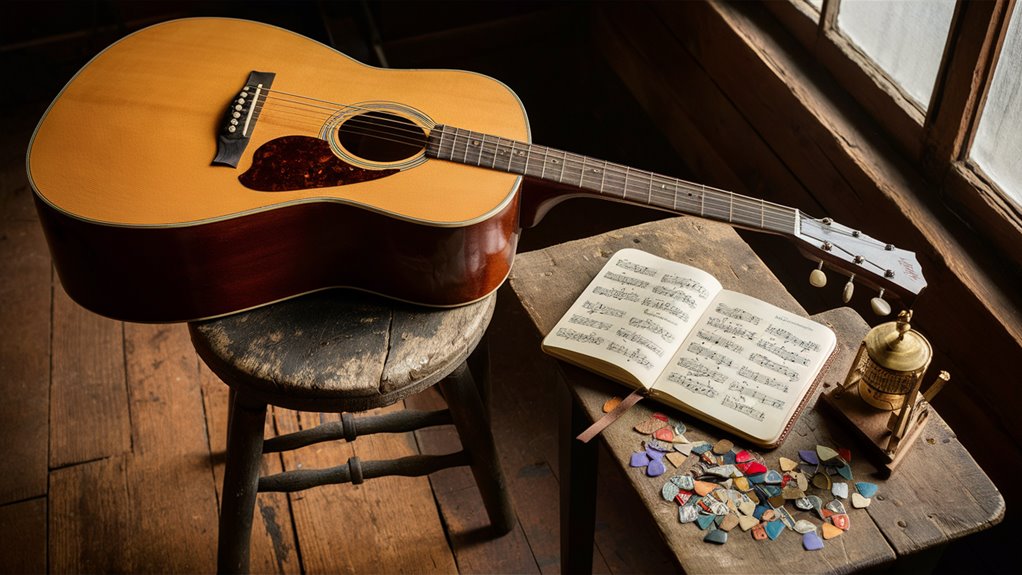
Match Your Skill and Likes
Choosing simple solo songs means thinking of where you are now and what you like.
Look for pieces with easy tunes, basic beats, and small chord moves.
Good keys to start include C major, G major, and A minor, which are comfy for your fingers and have less tricky bits for most tools.
What to Think About if You’re New
Key Things to Look At
- How fast to play
- How high and low notes go
- Skills you need
- How long is the piece
Good first solos have at most three new hard bits.
Short pieces from 1-2 minutes are best for new players.
Check each piece’s needs against what you can do right now.
Picking the Right Music
Good Starter Stuff
- Old folk songs
- Simple classic bits
- Easy pop tunes
Ask a music pro what tunes are best for your tool and level.
Getting really good at simple songs builds your skills and makes you sure rather than trying too hard stuff too soon.
Must-Know Music Reading Tips for Starters
Know the Base Reading Moves
Getting beats right is key to reading music well.
Start by knowing whole, half, and quarter beats.
Work beats apart from tunes to get your beat base strong.
Get What Music Signs Mean
Music keys and time values are big for reading right.
Start with pieces in common time (4/4) and keys like C major.
Always look at the key signs and spot any tricky bits before playing.
Getting Better at Reading
Knowing gaps and steps in music is key to read fast and right.
Work on seeing gaps and steps more than single notes to up your reading speed and get it right.
Know the steps (close notes) and skips (notes with gaps) to read better overall.
Smart Ways to Practice
Break hard pieces into bits you can handle for good learning.
Look at how phrases are built and practice bit by bit before joining them.
This planned way builds sureness and makes sure you really get the music.
How to Practice Well: A Full Guide
Making a Good Practice Plan
Having a set way to practice is key to do well and grow your skills.
Stick to a daily practice plan of at least 30 minutes, best at the same time each day, to keep habits and make sure you get better steadily.
How to Set Up Practice Times
Start Right
Start with 5-10 minutes of getting ready exercises and scales each time. This key start makes sure you play your best and stops hurts while getting your voice or tool ready.
Building Skills
Give 10-15 minutes to tight practice on hard bits in your songs. These focused moves build the base you need to play hard music well.
Working on Songs
Use the rest of the time for smart song work, working on bits you can handle not the whole thing at once. This smart way speeds up how well you learn and makes sure you really get the tough parts.
